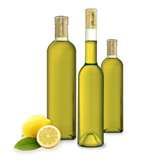For years I have used Lawry’s Seasoned Salt to flavor my popcorn, collard greens and cabbage, but last week I threw it away after learning that it contains hydrogenated oils that ARE NOT listed on the label. You read that right. Even though the United States Food and Drug Administration (FDA) requires food products to have nutritional and ingredient labels, all ingredients may not be listed. The only way I found out that Lawry’s Seasoned Salt has hydrogenated soybean and cotton seed oils was that the representative I contacted in the Consumer Affair Department at McCormick (the maker of Lawry’s) to find out if the salt had MSG masked under other names voluntarily told me about the oils. Here’s her email:
Dear Ms. Smith:
Thank you for taking the time to contact us again regarding our Lawry’s Seasoned Salt. This product does not contain yeast extract or autolyzed proteins, but it does container (sic) partially hydrogenated soybean and cottonseed oil. We hope this information is helpful to you.
If we can be of further assistance, please call us at 1-800-952-9797, Monday through Friday, 9:30AM to 5PM Eastern Time. If you wish to respond to this note by e-mail, please include your name and e-mail address.
We hope to have the continued pleasure of serving you.
After reading this note, I couldn’t understand how McCormick could get away with not listing trans fats, which hydrogenated oils are, on its label so I contacted the FDA. The first FDA representative I spoke to, who only identified herself as Anna, worked in the FDA national office in Silver Springs, MD, and said that if a packaged food has less than .5 grams of hydrogenated fat, the company doesn’t have to list that the product contains any trans fats. Not being familiar with the agency’s regulation for spices, Anna referred me to the regional FDA Consumer Complaint office in my hometown of Detroit.
I spoke with FDA representative Cecily Long who said that McCormick is probably not violating any FDA regulations. She said the partially hydrogenated oils would fall “probably under the catch all term ‘natural flavor.’” I challenged her, explaining that though cottonseed and soybean oils are natural they become altered from their natural state once they go through the process of hydrogenation.
Long: “They come from natural oils.”
Me: “So you’re saying that as long as an ingredient is derived from a natural source it can be considered natural no matter how it is modified?”
Long: “Yes.”
I paused audibly, galled by the deception and even further by the FDA’s response. “If you have a problem with a product you could choose not to buy it,” Long said. After telling her “I know that and have chosen not to use Lawry’s Seasoned Salt anymore, but I wouldn’t have known they had hydrogenated oils if the representative didn’t voluntarily tell me,” Long said: “If you’re ever in doubt about a product that’s what you should do; call the company. They know their product the best.”
So know this: Even with nutritional and ingredient labels you have to be responsible for knowing what’s in what you eat. From this experience and dozens that I have heard about, FDA regulations allow for companies to put ingredients in foods that are harmful to us and we not even know it. Historically, health advocates have told us to read the labels on everything you buy, but reading labels is not enough. Unfortunately, we have to do what Long advised and contact the company to get a full disclosure of what you are consuming. Though I believe labels are useless if they don’t tell us everything we need to know, ultimately the onus is on us to know what we are eating. It takes some work, but isn’t your health worth it?





